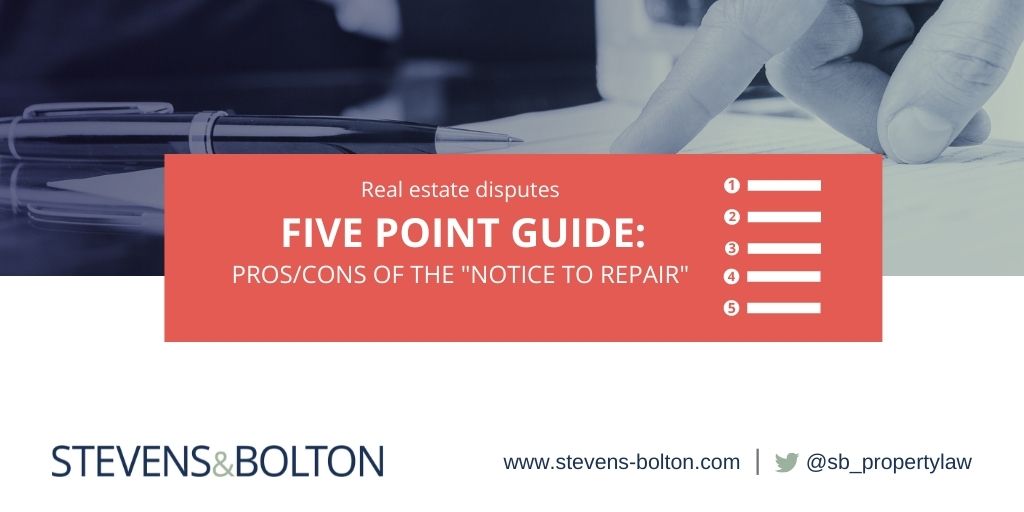 Recent reports suggest that High Court applications for CVAs or administrations have increased since April, with a marked rise in medium-to-large firms, unsurprisingly many of these in the retail sector. But this could be the tip of the iceberg. More company failures are expected with trade still being affected by existing COVID-19 restrictions remaining in place beyond 21 June when the government’s COVID-19 lockdown roadmap had been set to end.
Recent reports suggest that High Court applications for CVAs or administrations have increased since April, with a marked rise in medium-to-large firms, unsurprisingly many of these in the retail sector. But this could be the tip of the iceberg. More company failures are expected with trade still being affected by existing COVID-19 restrictions remaining in place beyond 21 June when the government’s COVID-19 lockdown roadmap had been set to end.
Landlords who are fortunate to find good covenants to replace failing tenants will be circling closely to see whether opportunities arise to recover early possession from struggling occupiers. Landlords are currently unable to recover possession by forfeiture for non-payment of rent due to the moratorium imposed by COVID-19 legislation last year. The moratorium is currently due to end on 30 June. Even if this deadline is extended, as it is now expected to be, a landlord faced with a tenant in administration will need to understand what it can and cannot do if it wants the property back.
1. Beware of the moratorium
When a tenant appoints an administrator a moratorium will come into force prohibiting all enforcement action against the tenant for the duration of the administration. Whilst the company continues to exist and the property remains vested in it, the landlord will be prevented from forfeiting the lease (whether by peaceable re-entry or by court proceedings) without first obtaining either the permission of the court or the administrator.
2. Quick surrender
If the administrator has no use for the premises and offers the landlord an early surrender, the position is relatively straightforward and the landlord will usually be able to recover possession fairly quickly. This can be achieved by agreeing an informal surrender, with the administrator returning the keys and (if required) the landlord counter-signing a letter accepting the surrender. A landlord should always check the terms of the surrender letter carefully before signing it to ensure that it understands and accepts the terms on which the surrender is being offered.
3. Rent as an expense
If the administrator doesn’t offer a surrender and wants to continue to trade from the premises as a benefit to the administration, the landlord will need to make an election. Either it accepts the status quo, in which case the landlord will not recover possession but it can at least demand rent from the administrator as an expense. In that case, the rent will be paid in priority usually in arrears for the period the premises is being used for the benefit of the administration.
4. Precursor to forfeiture
If the landlord decides it would rather try and recover possession, it will need to preserve its right to forfeit. For a breach of the lease other than non-payment of rent, a landlord will need to first serve notice on the administrator under s146 Law of Property Act 1925, specifying the breach, where appropriate giving the administrator a reasonable time to remedy that breach. If the breach is not remedied (e.g. the tenant’s appointment of an administrator is considered to be an irremediable breach) the landlord can approach the administrator for consent to forfeit. Once served, a landlord should tread carefully so as not to waive the right to forfeit. This could include as accepting rent, or giving notice under the lease to inspect the premises.
5. Apply to court
If the premises is an important asset to the business, the administrator may be reluctant to grant leave to forfeit. In that case, the landlord will need to consider the merits of applying to court for leave to forfeit instead. In deciding whether to grant consent, the court will assess the likely prejudice caused to the landlord in refusing consent against the detriment caused to the tenant’s creditors as a whole in granting consent. Each case will depend on its own facts and the court can exercise its discretion widely. The odds may be tipped in the landlord’s favour if an administrator cannot show that the purpose of the administration will be impeded by the forfeiture and refusing consent hinders the landlord’s ability to re-let.
Tenant insolvency and its impact on a landlords’ property rights can become complicated. Whether a landlord will be able to recover possession will depend on the circumstances of each case and the steps taken by the parties involved. Early legal advice is therefore essential when deciding what action to take and when.

 Markus Klempa
Markus Klempa